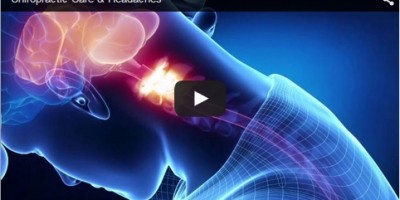Exciting News About Vitamin C
In this day of newly discovered and seemingly exotic supplements it is exciting to know that research of the benefits of our old friend Vitamin C is still being carried out. It appears that this Vitamin must not be overlooked for maintaining optimum health.
A new study has found that high dose of Vitamin C can suffocate mutated cancer cells and stop the spread of cancers in certain cases. The study conducted on mice found that cancer cells spreading due to KRAS and BRAF gene mutations could be controlled with high dosage of Vitamin C.
The study has been published in the latest issue of the journal Science. The study concentrated on colorectal cancer cells among mice with KRAS and BRAF gene mutations and found that with exposure to high plasma level of Vitamin C, the cancer cells face oxidative stress.
The study team found that cancer cells take in oxidized form of Vitamin C through a certain receptor and lose their ability to reproduce. As the mutated cells aren’t able to reproduce due to turning off of a specific enzyme, the research team concluded that high dosage of Vitamin C could be tested further for treatment of certain cancers.
The study was led by Dr. Lewis Cantley of Weill Cornel Medicine in New York. According to Mayo Clinic, Vitamin C helps is important for growth as it helps the body absorb iron. Despite this, it added that too much of the said vitamin in the body can cause diarrhea, nausea, vomiting, heartburn, headache, insomnia and kidney stones.
The research conducted on mice found that the mutated cancer cells were killed by high dosage of vitamin C. In cases when regular cancer therapies are not able to target mutated cells, Vitamin C could come to rescue, the research team noted.
The high dosage of vitamin C is equivalent to the amount found in nearly 300 oranges. Vitamin C is found in high amount in oranges, citrus fruits, bell peppers, broccoli, and papayas.
The study team said, “More than half of human colorectal cancers carry either KRAS or BRAF mutations, and are often refractory to approved targeted therapies. We report that cultured colorectal cancer cells harboring KRAS or BRAF mutations are selectively killed when exposed to high levels of vitamin C.”
Vitamin C is generally thought to improve health because of its antioxidant effect, which prevents or delays some types of cell damage. The team led by Dr. Lewis Cantley, of Weill Cornell Medicine in New York, NY, discovered that in the case of the KRAS and BRAF forms of CRC, the opposite was true. In these cancer cells, high-dose vitamin Cs caused oxidation, resulting in what could be a beneficial effect for patients.
In an oxygen-rich environment such as human arteries, a fraction of vitamin C, also called ascorbic acid, becomes oxidized and is transformed into a new compound called dehydroascorbic acid (DHA).
The current study reveals that DHA acts as a Trojan horse. Once inside, natural antioxidants in the cancer cell attempt to convert the DHA back to ascorbic acid; in the process, these antioxidants are depleted, and the cell dies from oxidative stress.
The insights may also be useful for other difficult cancers that express high levels of GLUT1 transporter, such as renal cell carcinoma, bladder cancer and pancreatic cancer.
In other recent research, human clinical trials testing for toxicity have shown good safety profiles for intravenous infusion of vitamin C at doses that converted to similar levels of serum as the trials in this research.
Compiled from NYC Today for Dr. David Jensen by Larry Heinrichs
Tags: cancer research, Nutrition, Vitamin c







